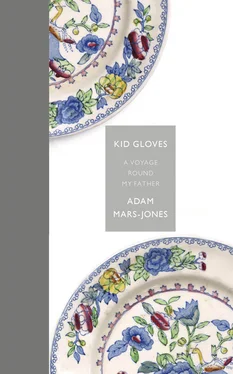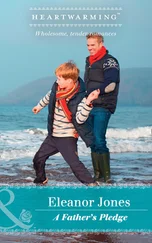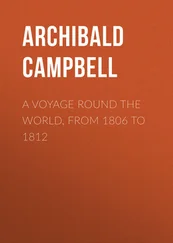Someone was needed to get there fast, to pass on the required message: Say nothing — tell them to call the press officer. I must have been at the top of the list. From Gray’s Inn Square I could have shouted out of the window and had a fair chance of being heard.
I raced to Panther House and shouted incoherently through the entryphone. It took a little while to persuade those within the fortress that I wasn’t some hectoring anti-gay passer-by, and when I was let in everyone was rather nonplussed. Arrest? What arrest? Phone calls, what phone calls? Eventually someone thought to check the phone. It turned out that the last person to hang up had returned the receiver to its cradle on the slant, putting the line out of service. People had been sitting around with cups of tea, making the most of the opportunity for undisturbed workplace smoking (in those bad old days), wondering vaguely why everything had gone so quiet.
When the Trust changed address, it was to come even closer, not letting me off the hook. The new premises on Gray’s Inn Road were barely a hundred yards from where I lived. If there was another emergency of the same type — providing I was at home and the Gray’s Inn Road gate from the Square was open, as was normal during business hours — reaction time could significantly be whittled down.
I had no thought, when I volunteered as a Buddy, that I would be gaining experience exploitable in writing. It was partly that I hadn’t written fiction for quite a few years at that point — I was generally assumed to be suffering from writer’s block, something I only fully realized when I was tactfully asked to review a book on the subject for the Independent on Sunday , as Susan Sontag might have been assigned a book on cancer or Gorbachev one on birthmarks.
In any case I didn’t see how Aids could be adequately fictionalized. Over time I changed my mind, and began to feel that the word itself, with its then conventional ‘full caps’, was the main obstacle, a visual shout that was likely to drown out with its repetitions any story in which it featured. Once I had realized it was possible to write an arresting opening sentence while re-placing the syndrome with the euphemism ‘Slim’, in a character’s plausible register, the rest of the story more or less wrote itself.
I showed my story to the person I was buddying at the time, Philip Lloyd-Bostock, wanting his blessing although as far as I knew I hadn’t used any of his personal details. It was still somehow an abstract invasion of privacy. He raised no objection, though it must have been disheartening to read an outsider’s recasting of his desperate situation, when he himself was trying to finish an autobiographical novel. It was published after his death as The Centre of the Labyrinth .
I thought the story (‘Slim’) would be effective on radio, where the withholding of the trigger-word might even ensnare listeners with no desire to empathize. Radio 4 took an interest, Martin Jarvis recorded it, and it was scheduled for broadcast late on a weekday evening.
I became restless several days in advance. I certainly didn’t want to listen to my story while it was broadcast, but it seemed silly to stay in and not listen to it. The logic was, then, that I would go out and be in some sanctioned public place when my story went out on its mission to galvanize lazy perceptions of illness.
I was in need of that quaint commodity ‘gay space’. When I looked at Time Out ’s gay listings for that evening, the only possible venue was the Market Tavern in Vauxhall, where there was a Body Positive evening. (It had to be a club rather than a pub because of the restrictions then in force about opening hours.) Body Positive was the support group for people who were HIV-positive. The ironical appropriateness of the venue was surplus to my requirements, but it was that or nothing. I would be in a room with a bunch of gay men who knew a lot more than I did about the reality of being unwell at the time my momentous little story was transmitted.
With the sort of neatness that I try to avoid when writing fiction, I met a man at the Body Positive evening, in what must have been the most stubbornly unatmospheric venue in London, who quietly dismantled the bachelor persona that didn’t suit me, though I didn’t myself know how to shed it.
Michael Jelicich was twenty-three and from New Zealand. He was tall (6'4") and dark, with elongated hands and feet that made him look like an El Greco. His ancestry was half Yugoslav — in those days we hadn’t learned to subdivide that national identity. I’m reminded of him when I see photographs of Goran Ivaniševi, who is Croatian, though Ivaniševi was still playing tennis as an amateur when I met Michael. He had been diagnosed as positive shortly before he left Auckland for London. The trip was long planned and he went through with it.
I must have made some impression on him that night at the Market Tavern, but he went home with someone else, Bill McLoughlin, who became a friend of us both. We pronounced his name differently to distinguish him from other Bills we knew, calling him Beel because of his fluency in Spanish. He had spent a lot of time in South America.
He had been in Peru at a time of great unrest, thanks to the Shining Path group. Once Beel was sitting in a café when a tear-gas grenade was lobbed through the doorway. Hardly even thinking, he threw it out again into the street.
Shortly afterwards a military policeman made an entrance, demanding to know who had thrown the gas grenade back. Beel raised his hand. ‘Why did you do that?’ he shouted.
‘Those things really kill the froth on a cappuccino,’ said Beel.
There was a moment’s incredulous pause, then the policeman grinned. ‘Yes, they do that, don’t they?’ he said. A Hemingway story, really, with a tiny added element of campiness, but when Beel was doing the telling I believed it. I can still almost believe it, on the basis that Beel’s Spanish, extremely good but English-accented, indicated someone it might be a mistake to brutalize.
I’m a bit vague about when Beel died, though he made it through a good stretch of the 1990s. Michael went home with him because Beel had only recently been diagnosed and thought he would never be able to hold someone close again, let alone have sex. I assume there was desire on Michael’s part as well as concern — the impulses can overlap. Michael was matter-of-fact about his own needs as well as other people’s. The exotic surname Jel-ic-ich was pronounced Jealous Itch, but that was just a handy mnemonic. It was the opposite of a character sketch.
Michael’s health broke down rather rapidly, given his youth and generally healthy lifestyle — he didn’t drink or smoke, and vegetarianism had been his preference for years. He had HIV-positive friends who swore by a macrobiotic diet to keep them healthy, and he went along with that experimentally, but his basic feeling was that it didn’t make sense to add extra difficulties to the business of feeding yourself when you had no energy and hardly ever felt hungry anyway. He reasoned that if he wasn’t going to be able to eat more than a few mouthfuls he should eat food with concentrated sustaining power, and if M&S Chicken Kiev wasn’t macrobiotic then that was just too bad. When I started to cook for him he asked me not to consult him about what we were having. He had so little appetite that it seemed wise to hold it back for the actual food, not waste it on menus.
I remember, though, that he read some testimony about the HIV-curative properties of hydrogen peroxide, and we thought we’d give it a try. For a while we added it to drinking water, starting with just a few drops then building up to a dose that would scour the virus from his blood. I drank it too, to keep him company — but then he would get sick and our H 2O 2regime stopped being a priority. The bottle from Boots and the medicine dropper lost their importance. I worried at first that we were drinking hair bleach, but he knew perfectly well that what was loosely called ‘peroxide’ was mixed with ammonium hydroxide. If I ever saw him adding ammonia NH 3to his glass I should intervene at once.
Читать дальше












